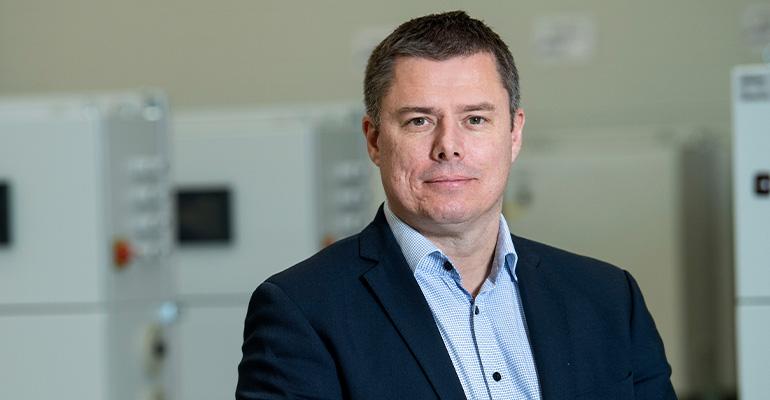In the future, shipping will be much greener. Instead of using fossil fuels, container ships and other types of vessels will run on new fuels such as methanol, ammonia, and biogas. In addition, shipping companies are subject to requirements for documenting their emissions of, among other things, methane gas and sulfur particles from their ships, increasing the need for advanced measuring equipment. Danish company Green Instruments specializes in developing such equipment, and over an extended period of time, the company has collaborated with companies in the shipping industry on developing a new advanced monitoring system designed for measuring the emissions of a wide range of gases from ships.
- The requirement for documentation means that ships should focus on onboard measuring equipment. For instance, the EU has mandated the reporting of methane gas emissions starting in January 2024, and to credibly document their emissions, shipping companies need to produce concrete measurements instead of trying to calculate them, as calculations are most often misleading. Green Instruments offers user-friendly measuring equipment specifically designed and developed for harsh maritime environments and based on many years of direct customer feedback. When we say, “designed for purpose,” we mean it, says René B. Christensen, Sales Director of Green Instruments, which specializes in technology for emission control, water and gas monitoring, hazard detection, and energy optimization on ships.
Green Instruments’ new G7200 Multi Gas Monitoring System is a future-proof CEMS which can be customized to meet regulatory requirements. The system can measure the emissions of nitrous oxide, sulfur, and methane gas, among others. Simply put, the monitoring system is composed of modules that measure different types of emissions. This allows the shipping companies to choose the specific modules they need, and to add new ones as requirements evolve.
- We have used all the customer feedback we have received over the past 5-6 years to develop a new, exceedingly adaptable and user-friendly product. Shipping companies need a system that is future-proof and flexible, as they are continuously met with new documentation requirements. Data is more important than ever, says René B. Christensen.
Cooperation with industry
No one in the industry doubts that documentation requirements will become more stringent in the years to come. The EU, the US and China have already passed stricter regulations, such as the EU’s MRV regulation (European Union Monitoring, Reporting, and Verification Regulation), the VGP in the US (Vessel General Permit under the United States Clean Water Act) and Emission Control Areas in China, which all go beyond the standards of the International Maritime Organization (IMO), and more regional regulations are underway.
- It is of no use to have ships that only meet the requirements in one specific region when they also sail in other regions, as is the case with several thousand ships in the international shipping industry. Because of this, shipping companies need a flexible system that can measure many different types of gases. This matches the feedback we receive from shipowners, with whom we have increasingly strong cooperation, says René B. Christensen.
This cooperation has resulted in Green Instruments’ measuring equipment being a central part of the MAMII (Methane Abatement in Maritime Innovation Initiative) – a large-scale project focusing on the measuring of methane emissions from ships. In this initiative, the company is working with, among others, several major shipping companies that operate ships powered by LNG.
- It is a major stamp of approval for our measuring equipment that we have been selected to participate in the project. In total, 16 global shipping companies partake in the cooperation, which we expect great things from. The goal is to contribute to a greener maritime industry for the benefit of the environment and climate, as well as to gain knowledge on emissions and variations during operation, which is not attainable through the usual calculations, René B. Christensen concludes.
Green Instruments has observed that in general, shipping companies show far more interest in measuring emissions from ships than they have done before. This is partly due to the fact that it pays for the shipping companies to have data available in an orderly and accessible manner. If authorities find, for instance, that they are emitting too much sulfur, they risk their ships being prohibited from sailing, getting sizable fines, or having to operate on much more expensive types of fuel. All of which may cost the shipping companies several thousand dollars a day.
Copyright © 2024. All rights reserved. Seatrade, a trading name of Informa Markets (UK) Limited.
Add Seatrade Maritime News to your Google News feed.  |

